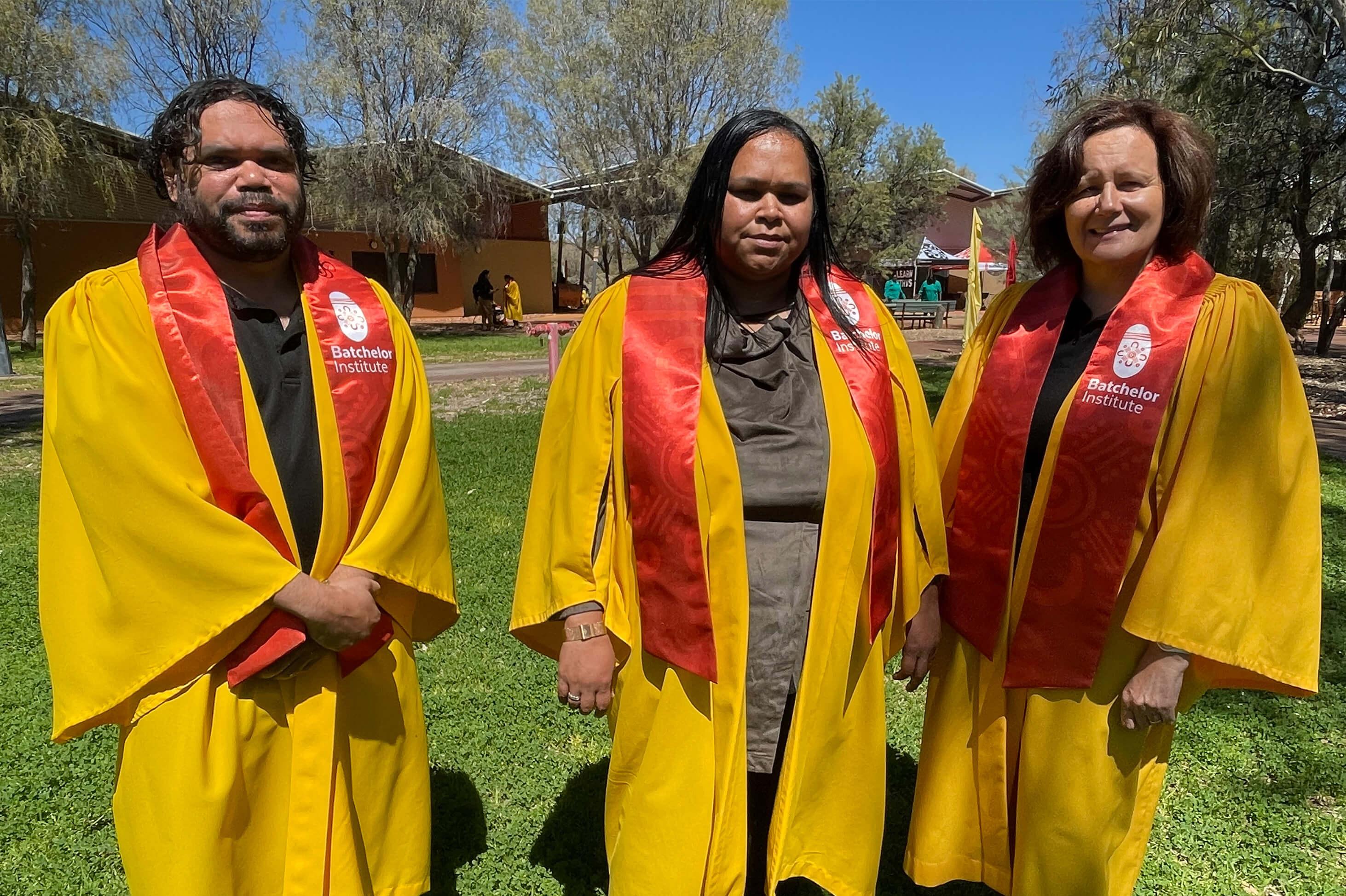

Yesterday, more than 100 students from around 18 NT communities and three states celebrated their graduation at Batchelor Institute’s Desert People’s Centre campus in Central Australia.
About one-third of the graduands collected a Certificate II in Family Wellbeing. The program focuses on Aboriginal people’s empowerment and personal development and is a pathway into the community services sector.
Five students completed their Certificate III in Visual Arts, which can help them step into a career as an artist or worker at an art centre.
Other popular courses include a Certificate II in Skills for Work and Vocational Pathways and Certificate I in Automotive Vocational Preparation.
Batchelor Institute Chair, Patricia Anderson AO, said these types of VET courses, taught both On Country and on campus in Alice Springs, can lead to real jobs in remote regions.
“I congratulate all of our graduands, as they join the amazing, inspiring, and formidable group of First Nations peoples, who make up the Batchelor Institute Alumni.
“These graduands are the future of industry in their communities,” Ms Anderson said.
“With their graduation certificates in hand, they are workforce ready and become instant role models for the young people around them.
“We know COVID-19 impacts have been challenging for educational institutions and students, and we applaud our graduands’ determination and resilience, and our staff, as they celebrate these successes today.”
Graduation fact file:
- 102 graduands
- 99 from the NT, one each from SA, Qld and NSW
- 25 from Alice Springs
- 19 from Tennant Creek
- 31 from remote communities across Central Australia
- Most popular career pathways:
- Community services
- Mechanics
- Construction
- Health care
- Visual arts
Batchelor Institute is Australia’s oldest First Nations tertiary education provider of training and research for First Nations peoples living in rural and remote communities.
